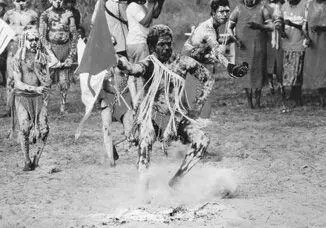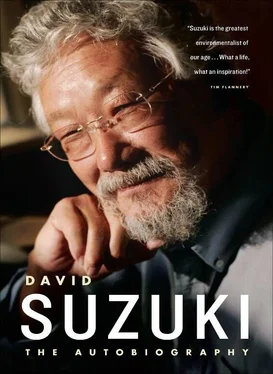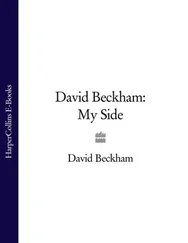AYERS ROCK, THE LANDMARK familiar around the world as one of Australia's icons, is now known by its Aboriginal name, Uluru, and is an amazing sight. Imagine a flat desert, hot as hell; out of its haze looms a massive piece of rock that changes color as the sun makes its way across the sky. An Aboriginal woman offered to walk around Uluru with Tara and me. As when I was filming!San people in the Kalahari Desert, at first all I saw was scrub and sand. And as with the!San people, I was shown there was food aplenty. In Australia it's called “bush tucker,” and this woman demonstrated great knowledge of it, pointing out tiny edible fruits and various nutritional and medicinal plants, as well as hiding places for insects and scorpions.
One of the terrifying aspects of globalization and economics is that this kind of knowledge is not seen as having value in a modern industrialized world, and what has taken thousands of years of careful observation, experimentation, and insight is being lost all over the planet in just a few generations and will never be recovered. This information is far more profound than current science, because it has been tested over time with the survival of those who possessed the knowledge.
During a book tour in the 1990s that took me to Brisbane, an Aboriginal man offered to take me on a short walk through the bush. I was delighted, and we drove to a nearby park. I was dressed in shorts and sandals, and as we stepped onto the trail, I looked at the leafy ground beside it and realized there were leeches waving their heads about a half an inch off the ground, just waiting for an easy victim. Fortunately, I evaded them as we searched for witchetty grubs, the white, fatty, larval forms of beetles that are much prized by Aboriginal people and eaten live or cooked. I was determined to eat a live one, but I must admit that I was not highly disappointed when the only grubs we found were “not the right kind.”
In Adelaide after one of my readings, an elder who looked white approached me and introduced himself. He was Lewis O'Brien, a respected elder of the Kaurna people. He was very pleased because I had talked about the book I coauthored in 1992 with Peter Knudtson, Wisdom of the Elders , which examined the congruence between aboriginal knowledge and scientific insights, and I talked about my respect for traditional knowledge and the way First Nations people had educated me about our relationship with Mother Earth.

Aboriginal people in Arnhemland performing for The Sacred Balance
In a simple gesture, Lewis said, “I want to give you a name — Karnemeyu. It means ‘holy mountain'.” Receiving a name is the highest honor I can imagine. It means far more to me than receiving an honorary degree from a university. What surprises me is that of the names I have received from aboriginal peoples, three have meant “mountain.” Simon Lucas, a Nuu-chah-nulth from Ahousat on Vancouver Island, gave me my first such name, Nuchi, meaning “mountain,” and the Blood Tribe near Lethbridge, Alberta, gave me the name Natooeestuk, meaning “sacred mountain.”
I was browsing through children's books in a store in Australia and came across one of several books written by Percy Trezise, a white man, and illustrated by Dick Roughsey, an Aboriginal artist. As I read the book, I found this pairing of a Caucasian and an Aboriginal intriguing. I saw that Percy lived in Cairns, so when Tara and I were in the city, I called him. He invited us to drop in, and when we did, he was happy to talk about his life.
Born in 1923, Percy had grown up believing Aboriginal people were primitive, almost subhuman; that was the prevailing attitude of the day. When he was an adult, he met Dick Roughsey and quickly realized the artist was very talented. As he began to spend time with Dick, he learned the horrific cost of bigotry and became committed to showing the world that Aboriginal people are neither primitive nor unintelligent.
A professional pilot, Percy started to explore the northern parts of Queensland and to locate rock paintings all over the territory. These lands aren't empty; they are filled with evidence of thousands of years of unbroken use by the original inhabitants. By the time he died in 2005, Percy had contributed vastly to the documentation and preservation of Aboriginal culture and rock art and was an artist himself.
One of our greatest regrets was a trip Percy arranged for us that never happened. His son is a pilot, and Percy arranged for us to meet him and fly to one of the remote areas where Percy had documented and mapped hundreds of rock paintings. We were on the plane and strapped in when the announcement came that the weather was too inclement to risk flying.
BYRON BAY IS HIPPIE heaven on the east coast of Australia. I was met at the airport by a lawyer who was volunteering to help my book tour. On the drive into town, I casually mentioned that I had heard there were a lot of hippies and pot smoking in Byron Bay. Bam, he pulled a joint out of his pocket and asked if I wanted a toke. I turned it down, of course, but it looked as if Byron Bay was my kind of place. My talk was very well received, and we sold a lot of books. Before saying goodbye, the man who had picked me up handed me an envelope, which I shoved in my pocket and later threw into my suitcase.
The next day I had time to go snorkeling in the gorgeous bay that gives the place its name. The water was amazingly clear, and I spent most of my time simply floating among massive schools of sardines. There were turtles, seals, and lots and lots of fish. At one point I felt a burning across my cheek and after frantic wiping found an almost invisible tentacle of a bluebottle jellyfish. I ended up with a red line across my face, a small discomfort for a wonderful swim.
I forgot about the envelope from the man who had picked me up the day before and flew to Sydney to change planes to fly to Perth. As I got out on the tarmac, I noticed a sign warning that dogs were used to detect illicit materials. Then I remembered the envelope, so as soon as I got into the airport terminal building, I whipped into a men's room and threw it away. I came out whistling, and there was a dog! It approached my bag and immediately went at it. The dog's handler was a woman who recognized me and, pulling on the leash, said apologetically, “I don't know why he's so excited.”
“Well, I did have some mangoes in there this morning,” I suggested. “That must be it,” the officer said, and she rather brusquely pulled the dog off my bag. Poor thing was only doing its job, but ever since, when I go to Australia, I ask my hosts how the mangoes are.
IN ALMOST TWO DECADES of visiting Australia at least twice a year, I have come to think of it as my adoptive land. It is a continent of extreme contradictions. Any tourist may be impressed with gleaming, modern cities, yet most of the country is virtually uninhabited by whites. Australia is an island continent where a rise in sea level as the planet warms will have an enormous impact. The climate, already tropical and subtropical, will grow increasingly warmer, but the federal government repeatedly refuses to act seriously to reduce its greenhouse gas emissions. Canadians envy Australia for its quantities of sunlight, yet the government fails to exploit this free, nonpolluting energy to make Australia a leader in solar technology as Germany and Denmark are with wind power.
Australia is a major exporter of wheat and rice, two crops that are not indigenous to the continent and require vast quantities of severely limited water. The flora and fauna of Australia set the nation apart with its unique biodiversity, yet exotic species, introduced accidentally or deliberately, continue to wreak havoc on local populations.
Читать дальше



![David Jagusson - Devot & Anal [Hardcore BDSM]](/books/485905/david-jagusson-devot-anal-hardcore-bdsm-thumb.webp)









